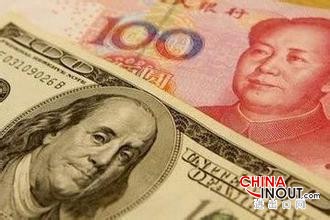
達(dá)沃斯傳來(lái)重磅消息,,中國(guó)將向外國(guó)央行打開(kāi)境內(nèi)匯市大門(mén)了,,這是繼7月份央行下文對(duì)三類(lèi)外資機(jī)構(gòu)開(kāi)放銀行間債市后的又一舉措,李克強(qiáng)總理在達(dá)沃斯論壇上發(fā)表演講時(shí)做出表示的,。
在美聯(lián)儲(chǔ)引導(dǎo)美元加息后,,以及中國(guó)央行宣布調(diào)整人民幣中間價(jià)并引發(fā)全球匯市動(dòng)蕩的背景下,中國(guó)政府再就匯市開(kāi)放做進(jìn)一步的調(diào)整,,意味兒深長(zhǎng),。
筆者認(rèn)為,此舉在四個(gè)方面需要討論:
一是此次引入的是各國(guó)央行,。央行進(jìn)入?yún)R市一般而言,投機(jī)性不強(qiáng),,長(zhǎng)線持有人民幣的可能性較大,,與完全向投機(jī)者開(kāi)放匯市不同,此舉并不會(huì)引起匯市較大波動(dòng),。
二是可以進(jìn)一步推進(jìn)人民幣國(guó)際化,。在過(guò)去幾年,央行與各國(guó)達(dá)成了人民幣與各國(guó)貨幣互換協(xié)議,,有的國(guó)家還建立了離岸人民幣交易中心,,但是,離真正的把人民幣納入儲(chǔ)備貨幣還有更遠(yuǎn)的路要走,,而此次引入各國(guó)央行進(jìn)入中國(guó)匯市,,是真正邁開(kāi)了人民幣國(guó)際化的步子。
三是有助于穩(wěn)定人民幣匯率,。在美元加息預(yù)期的當(dāng)下,,中國(guó)政府采取將人民幣開(kāi)放的舉措,可以減緩美元外流速度,,甚至因各國(guó)央行參與人民幣買(mǎi)入而使得國(guó)內(nèi)美元流動(dòng)性變得更加穩(wěn)定,,防止了美元大幅外流造成的沖擊,也減輕了央行維穩(wěn)匯率的壓力,。
四是有助于壓低國(guó)內(nèi)長(zhǎng)期利率,。境外以美元進(jìn)入我國(guó)后,會(huì)兌換成人民幣,,并買(mǎi)入長(zhǎng)期國(guó)債,,這有助于壓低國(guó)債利率,同時(shí)壓低人民幣利率,,從長(zhǎng)遠(yuǎn)看,,可以降低實(shí)體企業(yè)貸款利率,利多中國(guó)實(shí)體經(jīng)濟(jì)。
除上述意義外,,人民幣借此可以在全球流通,,進(jìn)而成長(zhǎng)為全球主要儲(chǔ)備貨幣。
從金融市場(chǎng)分析,,由于人民幣國(guó)際化后,,直接的效果就是降低了長(zhǎng)期利率,降低了企業(yè)貸款成本,,同時(shí),,中國(guó)對(duì)外貿(mào)易由于使用人民幣結(jié)算,降低了匯兌成本,,對(duì)實(shí)體經(jīng)濟(jì)有著顯著的提振作用,,反映到公司業(yè)績(jī)上,存在長(zhǎng)期利多,,股市或因此大幅上漲,。(中國(guó)進(jìn)出口網(wǎng))
Big news from Davos, China will open the door of domestic foreign exchange market to the foreign central bank, which is another move following China’s central bank’s opening inter-bank bond market to three foreign institutions, Premier Li Keqiang expressed in a speech of Davos.
After the Federal Reserve guided to raise interest rates of the dollar, as well as China's central bank announced the yuan central parity adjustment and triggered the global currency turmoil, in the background, the Chinese government made further adjustments on the foreign exchange market.
I believe that the move needs to be discussed in four areas:
First, the introduced objects are the central banks of other countries. The in the foreign exchange market, the central banks in general, have no strong intention of speculation, and they are likely to hold RMB in the long term, and the move is completely different from opening to speculators, and the move won’t cause greater volatility in currency markets.
The second is to further promote the internationalization of RMB. In the past few years, the central bank reached agreements of currency exchange with other countries, and some countries have also established an offshore RMB trading center, but it’s far from the real reserve currency of the RMB, and this time central banks of other countries enters into foreign exchange market, which is indeed a start of internationalization of the RMB.
Third, to help stabilize the currency. Under the background of US dollar interest rate raise expectations, Chinese government has taken initiatives to open RMB, which could slow the dollar outflow speed, make US dollar liquidity more stable, prevent the impact of the dollar outflow, and also reduce the central bank’s pressure on the exchange rate stabilization.
Fourth, to help drive down long-term domestic interest rates. The offshore dollar enters China, then will be converted into RMB, and will be used to buy long-term government bonds, which will help drive down Treasury rates, as well as undervalue RMB interest rates, in the long run, it can reduce business lending rates, and benefit Chinese real economy.
In addition to the above sense, RMB could take global circulation, and then grow into the world's main reserve currency.
From the analysis of financial markets, the internationalization of RMB can reduce the long-term interest rates and the cost of corporate loans, while RMB settlement can reduce the exchange costs, boost the real economy, and benefit companies, the stock market or therefore rises sharply.











